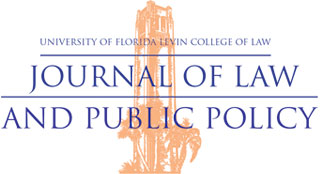
Abstract
Central to the Supreme Court’s holding in Dobbs v. Jackson Women’s Health Organization that the right to obtain an abortion would no longer be recognized as a fundamental right is the theory of historical tradition: the view that the only liberty interests recognized as fundamental rights under the Due Process Clause are those that are “deeply rooted in this Nation’s history and tradition.” This Note argues that the theory of historical tradition should not set the outer boundaries of fundamental rights. In demanding that a fundamental right find support in the Nation’s history and tradition, the Supreme Court imports a concept of liberty from a span of time in which many groups among our political community today were pathologized, denied basic political rights, or subject to state-sponsored discrimination. In this way, the theory of historical tradition makes the Constitution a less representative document—one that fails to respect the free and equal status of many groups among the contemporary “We the People,” and one that embodies a concept of liberty that these groups could not have reasonably been expected to endorse had they been given a meaningful opportunity to negotiate limits on legislative power at our Nation’s inception. Moreover, to the extent that the theory of historical tradition is intended to promote objectivity in the fundamental rights analysis, it enjoys only limited success. Historical traditions are often ambiguous, contradictory, or disputed, and the level of generality at which judges should describe traditions and liberty interests under the theory remains unclear. For these reasons, the theory of historical tradition should not be the sole method of identifying fundamental rights.
In defending this claim, this Note first describes the requirements of the theory of historical tradition by tracing its development through several Supreme Court opinions. This Note then briefly defends substantive due process on textual and originalist grounds. It also defends substantive due process on functional grounds: substantive due process gives groups who were deprived of the opportunity to negotiate limits on legislative power at the Founding and during the Reconstruction a chance to secure liberty interests that they could have reasonably been expected to secure had they been given an opportunity, as free and equal members of the political community, to negotiate these limits. This Note then engages with the work of Professor Daniel Conkle to articulate a set of evaluative criteria for theories of substantive due process (i.e., theories of which liberty interests rank as fundamental rights under the Due Process Clause). These criteria include Conkle’s criterion of “judicial objectivity,” a modified version of Conkle’s criterion of “functional justification,” and a new criterion of “constitutional completion.” This Note then evaluates the theory of historical tradition against these evaluative criteria and concludes that it should not be the sole method of identifying fundamental rights.
Recommended Citation
Wilkson, Parker J.
(2025)
"The Danger of Dobbs: Substantive Due Process, Fundamental Rights, and a Critique of the Theory of Historical Tradition,"
University of Florida Journal of Law & Public Policy: Vol. 35:
Iss.
2, Article 2.
Available at:
https://scholarship.law.ufl.edu/jlpp/vol35/iss2/2
